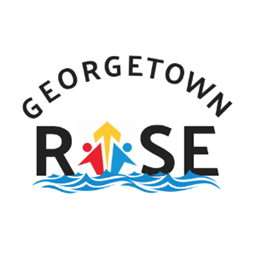
Georgetown RISE | Crafting a vision for Georgetown County through sustainable development
The goals of Georgetown RISE

Georgetown RISE brings folks together to outline a vision for Georgetown County’s future shaped by the United Nations’ 17 sustainable development goals:
No poverty
Zero hunger
Good health and well-being
Quality education
Gender equality
Clean water and sanitation
Affordable and clean energy
Decent work and economic growth
Industry, innovation and infrastructure
Reduced inequalities
Sustainable cities and communities
Responsible production and consumption
Climate action
Life below water
Life on land
Peace, justice and strong institutions
Partnerships for the goals
More Info
Backed by the United Nations, Georgetown RISE works to help ensure a vibrant, healthy community for future generations.
Imagine Georgetown County 10 years from now.
Will flooding still be an issue? Will more residents decide to stick around to start their careers or leave like many younger residents do now? Will all residents – even the uninsured - have access to the health care they need?
Georgetown RISE – which stands for resilience, innovation, sustainability and education - brings leaders together to plan for that future through sustainable development. The group - including Tidelands Health and others - is crafting a vision using 17 sustainable development goals developed by the United Nations to help ensure a vibrant, healthy community for future generations who will call Georgetown County home.
The group tackles goals for a well-rounded, healthy community, including quality education, clean water, economic growth, clean energy, no poverty and good health and well-being, among others.
“Success is a community working together toward the 17 sustainable goals,” said Pamela Martin, executive director of Georgetown RISE and a professor at Coastal Carolina University, which is leading the effort. “Success will be increased collaboration moving the target goals forward. That is an exciting prospect.”
Tidelands Health and CCU frequently collaborate to serve the community. CCU is a partner in the Tidelands Community Care Network, bringing the vision of Georgetown RISE and its goal of impacting the overall health of the community.
CCU, partnering with the North Inlet-Winyah Bay National Estuarine Research Reserve and Georgetown County, started Georgetown RISE in January 2017. It is one of only 165 designated UN Regional Centres of Expertise in the world and the only one on the Southeast coast.
While the effort is backed by a global organization, the goals for 2030 are tailored by locals to fit their unique communities. The effort brings together folks who might not usually work together – business owners, educators, residents, elected officials and others.
The Georgetown group sponsors events to educate and get feedback on issues such as sea level rise and flooding – topics that have gained more attention locally after a string of devastating storms in recent years and historic river flooding.
“The whole demeanor of our community has changed,” Martin said. “They can barely rebuild before the next storm hits them.”
Creating jobs to meet workforce needs and offer career opportunities for younger residents has been a focus through Georgetown RISE’s Youth Corps. CCU students are paired with employers in the county – including Tidelands Health – for internships or for work on a special project, such as researching grants for nursing that might help remedy the shortage in that field.
Georgetown RISE is one of about 25 partners in the Tidelands Community Care Network, which was created by Tidelands Health in partnership with Access Health SC and The Duke Endowment. The network is comprised of health educators, state agencies, transportation providers, primary and specialty care providers and others who can help uninsured residents have access to medical care.
Serving the community isn’t just about meeting today’s needs, but working collaboratively to plan for future generations.
“The sustainable development vision being crafted for Georgetown County through CCU and Georgetown RISE is valuable beyond measure,” said Kelly Kaminski, director of community health resources for Tidelands Health. “The expertise and collaborative spirit at CCU serves our community not only now but also will for generations to come.”
Martin said a key part of the process is getting feedback and insight from residents – a model already at work in the Tidelands Community Care Network. The network aims to eliminate the roadblocks residents encounter trying to access health care – such as transportation to medical appointments – by bringing in partners who can help.
“Tidelands Health is providing not only resources but is also listening to residents out there in the community, finding out what Tidelands Health needs to respond to,” Martin said.